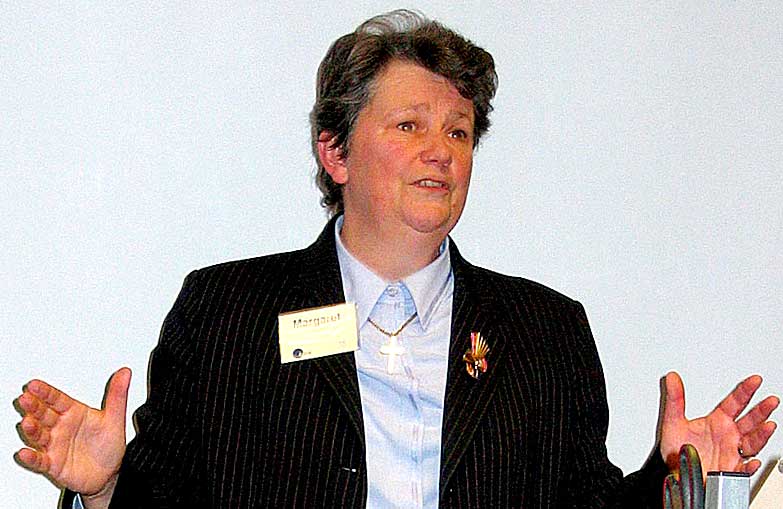Name
|
Date ordained
Deacon 1994, Priest 1995 Sphere of work IT Services – most recently sales, account management, programme manager and operations manager in large IT Services companies (EDS and Fujitsu). I’m also politically active. Why did you become an SSM/MSE/WP? It was quite clear to me from the point at which I realised that I was being called to ordination that this was to be in addition to what I was already involved with, not instead of it. Fortunately, while no-one ‘in authority’ seemed terribly keen about this, they weren’t fundamentally opposed to it either, so once I had discovered that there were other English MSEs and could cite examples I just plugged ahead. What's best about what you do? Being in the everyday environment with all the other people I work with, being subject to the same constraints, pressures, challenges and opportunities that they have, and being able to open their eyes just occasionally to the bigger picture, support them and go into bat for them (usually in ways which, on the surface, have no obvious connection with the fact that I am a priest). What's the most challenging? Being in the everyday environment - see previous answer. And explaining to clergy, repeatedly and without gritting my teeth too hard, why I ‘have to be ordained to do that’ or how I ‘can find time to be a proper priest as well as working’. If the church asked, what would you say are the three most important things you have learnt from your work-focused ministry?
If the church asked, what would you say are the three most important lessons for it which have emerged from your work-focused ministry?
Why do you think the SSM/MSE/WP development within the CofE has, to date, been so lack lustre? There is a general perception that, having trained on part-time courses rather than at ‘proper’ colleges, these people are ecclesiastical amateurs and can’t be given real responsibility. There is another perception that they have good professional skills, are willing to be ‘clergy for free’ and are therefore a threat to the continuation of stipendiary ministry. And they could be dangerous because, being neither paid nor housed by the church, they can’t be controlled in the same way. So probably sensible just to keep quiet about it. However, I would differentiate between SSM on one hand and MSE/WP on the other. SSM isn’t lack-lustre, exactly – it’s increasing (and sometimes inappropriately encouraged), but is essentially seen as a support for the parochial system and stipendiary clergy in order to maintain the status quo. However, pace Teresa Morgan, far too little use is made of the skills, abilities and willingness of SSMs, because there is little or no information about this and no willingness to think outside the box. MSE/WP is very different – we are truly eccentric (in the literal sense of the word) and are operating way beyond the experience of the people who control selection, formation, training, deployment and further development of clergy. There are not many of us and we are very busy – which means we usually don’t have the time or opportunity to publicise what we are and do to potential MSE ordinands and others who might encourage and affirm them – so there are not many of us! Newly-ordained MSEs have to fulfil the same CME requirements as others – all of which are focussed on parish ministry and experience and are hard to interpret in an MSE context (assuming that the diocese will allow this). It’s hard to keep going in the first three years. There is no specialist training or support for MSEs other than that which we provide for ourselves. MSE is not valued because it isn’t seen as contributing to the work of the church (except when we allow ourselves to be dragged in for Sunday cover, interregna, etc.) What is it that SSM/MSE/WPs can contribute to the mission of the church today?
What do you think SSM/MSE/WPs need to receive from the church in order to be effective in their unique ministry? Note that most of the items below wouldn’t cost much, except in the effort needed to change mind-sets.
Would you do it all again (and anything else you simply must say)? I find – and have found – my MSE ministry to be tremendously joyful and fulfilling, and would most certainly do it again. It is an immense privilege to be able to work with, support and serve my work colleagues from day to day. I am also licensed as an assistant curate to a parish, where I have, for obvious reasons, very limited involvement. I regard the parish connection as a necessary support and grounding for my vocation as an MSE, but am pleased and encouraged to find that the congregation feels that I am a resource for them too. My strap-line: God in the Mass on Sunday; God in the mess on Monday. |

